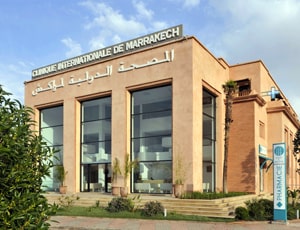A heart surgery is typically required for the correction of a defect in the heart. While most of the major defects are treated with the help of open heart surgery, the minor ones can be corrected with the help of closed heart surgery.
A closed heart surgery procedure is performed on patients with minor heart defects. In most of the cases, this approach is used on pediatric patients. A majority of closed heart surgery procedures may involve the major blood vessels that carry blood to the heart and other parts of the body. Some of the examples of procedure performed using closed heart surgery approach include placement of a Blalock-Taussig shunt or pulmonary artery bands and repair of coarctation of the aorta.
The main difference between a closed heart surgery and an open heart surgery is that the former does not require the support of a heart-lung bypass machine during the surgery. That is, a closed heart surgery can be performed on a beating heart, whereas an open heart surgery is performed on a non-beating heart.
Additionally, there is no need for the surgeons to open the chest to access the heart in the case of closed heart surgery. The heart can be accessed through a small hole in the chest (sternotomy) or in the side between the ribs (thoracotomy).
The exact steps performed during a closed heart surgery actually depends on the type of procedure being conducted and the approach used to access the heart. The following are some of the major steps taken during closed heart surgery:
Closed heart surgery is not always performed as a corrective surgery. Sometimes, it may be performed as a palliative surgery as well. A palliative heart surgery is the one that is conducted to target the problems caused due to a heart defect rather than the defect itself. It is mostly performed when a series of surgeries are scheduled to be conducted for the correction of the heart defect such as a hole in the heart and ventricular septal defect.
Recovery after closed heart surgery depends on how well the surgery has been conducted and also on the overall health of the patient. Since closed heart surgery is conducted for the correction of minor heart defects, the overall recovery is good.
In case it is performed as a corrective surgery, the patient is typically discharged from the hospital within a day or two. In case closed heart surgery is performed as a palliative surgery, recovery may take some time and the patient may be kept in the hospital until other planned surgeries are conducted.
Careful monitoring in the intensive care unit (ICU) is required in some cases. The patient is administered pain control medications through an IV line is required. Complete recovery in case of a closed heart surgery may last for a few days.

Delhi, India
Equipped with more than 50 specialty institutes, Indraprastha Apollo was started with the vision of ...more
![]() Private Driver / Limousine Services
Private Driver / Limousine Services
![]() International Cuisine
International Cuisine
![]() Phone in Room
Phone in Room
![]() Online Doctor Consultation
Online Doctor Consultation

Marrakesh, Morocco
History Clinique Internationale Marrakech is opened to provide world-class medical services to the ...more
![]() Airport Transfer
Airport Transfer
![]() Choice of Meals
Choice of Meals
![]() SIM
SIM
![]() TV inside room
TV inside room

Tel Aviv, Israel
Assuta Medical Center is a leading private hospital in the capital city of Tel Aviv in Israel. Assut...more
![]() Airport Transfer
Airport Transfer
![]() Choice of Meals
Choice of Meals
![]() Interpreter
Interpreter
![]() TV inside room
TV inside room

Cardiac Surgeon
Delhi, India
10 Years of experience
USD 32 for video consultation
Q: Is hole in the heart treatment a closed heart surgery?
A: Hole in the heart, also known as a ventricular septal defect, usually closes on its own during infancy. Mostly, an open heart surgery is required in case it does not close on its own.
Q: What is open and closed heart surgery?
A: The chest of the patient is opened during open heart surgery, while there is no need to do so in case of closed heart surgery. Additionally, closed heart surgery is performed on the beating heart, while the patient is connected to a heart-lung bypass machine in the case of an open heart surgery.
Q: Will I get a scar if I undergo closed heart surgery?
A: You may get a minor scar, which is highly inconspicuous. In most of the cases, the scar is usually on the side of the chest.
Q: Which area is operated during closed heart surgery?
A: A closed heart surgery is usually performed on cardiac structures that are located on the exterior of the heart. Open heart surgery, on the other hand, is performed on the internal areas, including the muscles, arteries, and valves of the heart.